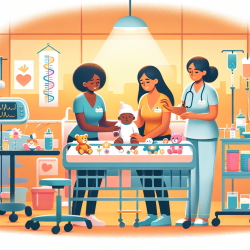Introduction
In the realm of speech-language pathology and therapy, understanding the psychological factors that influence our clients' well-being is crucial. A recent study titled Commending rather than condemning: Moral elevation and stigma for male veterans with military sexual trauma offers valuable insights into how moral elevation can be leveraged to reduce stigma and improve outcomes for male veterans who have experienced military sexual trauma (MST).
Understanding Moral Elevation
Moral elevation is an emotion experienced when witnessing someone perform a virtuous act. It is characterized by feelings of inspiration, upliftment, and a desire to engage in prosocial behavior. This emotion stands in contrast to the negative attitudes associated with stigma, making it a potential tool for reducing prejudices and fostering positive perceptions.
Key Findings from the Study
The study explored the relationship between moral elevation and stigma in male veterans with MST. Key findings include:
- State-level elevation in response to a veteran's self-disclosure of MST was negatively correlated with harmful stigmatic beliefs.
- Individuals with a predisposition to experience elevation and PTSD symptoms showed stronger elevation responses.
- Higher moral elevation was associated with greater willingness to help and lower avoidance behaviors.
Implications for Practitioners
For practitioners, these findings highlight the importance of incorporating moral elevation into therapeutic practices. Here are some practical steps to consider:
- Incorporate Stories of Virtue: Use narratives or videos that showcase virtuous acts, particularly those involving courage and recovery, to elicit moral elevation in clients.
- Tailor Interventions: Consider the individual's predisposition to experience elevation and their PTSD symptoms when designing interventions.
- Focus on Empathy: Encourage empathy and understanding to enhance the client's capacity for moral elevation and reduce stigma-related attitudes.
Encouraging Further Research
While the study provides a foundation, further research is needed to explore the mechanisms through which moral elevation influences stigma reduction. Practitioners are encouraged to contribute to this growing field by conducting studies and sharing findings with the broader community.
Conclusion
Understanding and leveraging moral elevation can be a powerful tool in reducing stigma and improving therapeutic outcomes for male veterans with MST. By fostering an environment that encourages virtuous behavior and empathy, practitioners can help their clients overcome stigma and achieve better mental health.
To read the original research paper, please follow this link: Commending rather than condemning: Moral elevation and stigma for male veterans with military sexual trauma.










